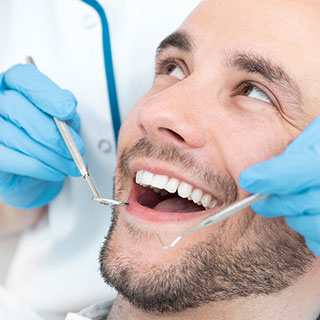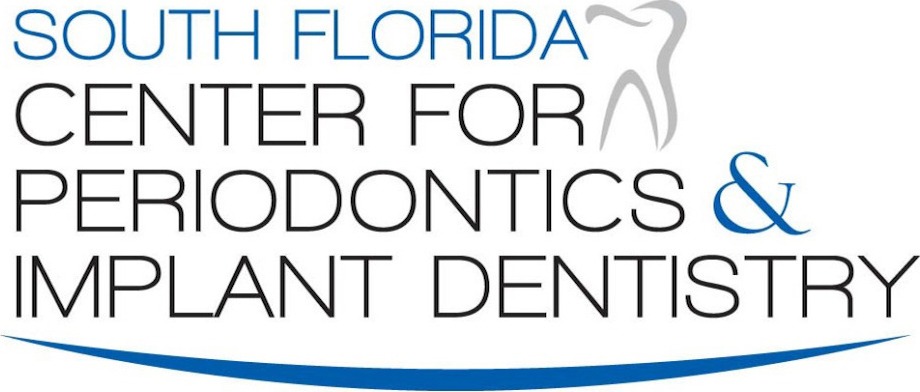Treatment of Gum (Periodontal) Disease

The cause of periodontal disease is bacterial accumulations (biofilm or plaque) on the root surfaces below the gum line. Under certain conditions, these bacterial deposits organize and calcify, often becoming as hard as barnacles on a pier. Effective treatment of periodontal disease requires removal of these deposits. We do it with specialized instruments using local anesthetic to avoid pain during treatment. Afterward, patients report virtually no recovery pain or swelling.
Upon reevaluating your individual situation (ordinarily about four weeks later), we normally see that periodontal “pockets” have been reduced and that bleeding is diminished. Our long-term goal is for you to be able to maintain your oral hygiene at home with normal brushing and flossing in conjunction with professional cleanings at South Florida Center for Periodontics & Implant Dentistry and by your regular dentist.
If your periodontal disease is deemed advanced, non-surgical periodontal therapy might precede additional surgical therapy. Often, we will work to decrease the areas that will require surgery. If we are considering or recommending LANAP®, we will intentionally not do non-surgical periodontal treatment since we get better results without it.
Periodontal Maintenance (Ongoing Professional Supportive Care) Is Critical
Regardless of the severity of the periodontal disease, ongoing maintenance, meaning routine follow up and professional cleaning with our hygienists, is essential to long-term success. Most patients are seen at three- to six-month intervals after active periodontal therapy so we can monitor results and prevent recurrence of the disease. This is critically important for implants too as they can develop bone loss if not cleaned and maintained properly.
